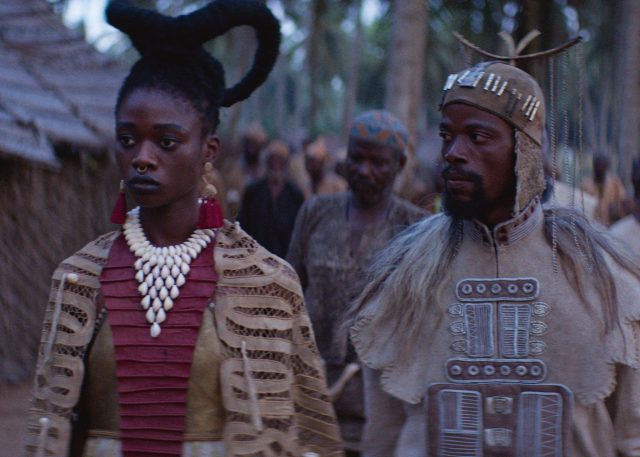Night of the Kings: Histories, by David Bax

Philippe Lacôte’s Night of the Kings appears at first to be a grim and visceral prison drama, not unlike Jean-Stéphane Sauvaire’s A Prayer Before Dawn from 2017. And, in many ways, that’s just what it is, set inside the Ivory Coast’s Maison d’Arrêt et de Correction d’Abidjan (MACA) prison, where overcrowding, poor hygiene and violence are well-documented. But Lacôte sees all this as an ideal foundation on which to construct an elaborate world of hierarchy and ritual not unlike those found in fantasy novels.
Mere minutes into his first day as an inmate at MACA, a young man (Bakary Koné) is told by Blackbeard (Steve Tientcheu), the current “king” of the prisoners, that his new name will be Roman and that he is to fulfill the role of storyteller to the prison population. Coincidentally (meaning not at all coincidentally) tonight is a night of the red moon that marks the occasion upon which the storyteller must tell tales until the sun rises. As this tradition gets underway, political intrigue bubbles below. Blackbeard’s reign is threatened with a possible coup by those who seek to replace the existing system of feudalism with a more modern, though no less exploitative, one of capitalism.
Lacôte uses a modern setting of real life injustice and suffering to explore the importance of folklore. Telling stories, be they accounts of actual events or fantastical parables, has been humanity’s way of making sense of its place in this world since before recorded history.
So Roman begins to tell a story–one that will reveal itself to be replete with asides, departures, cul de sacs and switchbacks, many of which we see play out as Roman sees them in his mind–about the gang leader under whom he served in the city of Abidjan before his arrest. As he does so, a group of inmates begin echoing important plot developments in song or by acting them out. Here, Lacôte invokes the Greek chorus.
Night of the Kings‘ brand of tragedy, though, is less Greek than it is Shakespearean. The byzantine, even baroque, political maneuvering–usually inspired more by personal gain than by idealism–is the stuff of any one of the bard’s plays about kings.
Eventually, Roman discloses that the name of his former gang was the Microbes and admits that it was an homage to the name of a gang in Kátia Lund and Fernando Meirelles’ City of God. His audience cheers in recognition; they love that movie too. Night of the King reveals that, as a film, it’s not just about the history of folklore, it’s part of it.




























